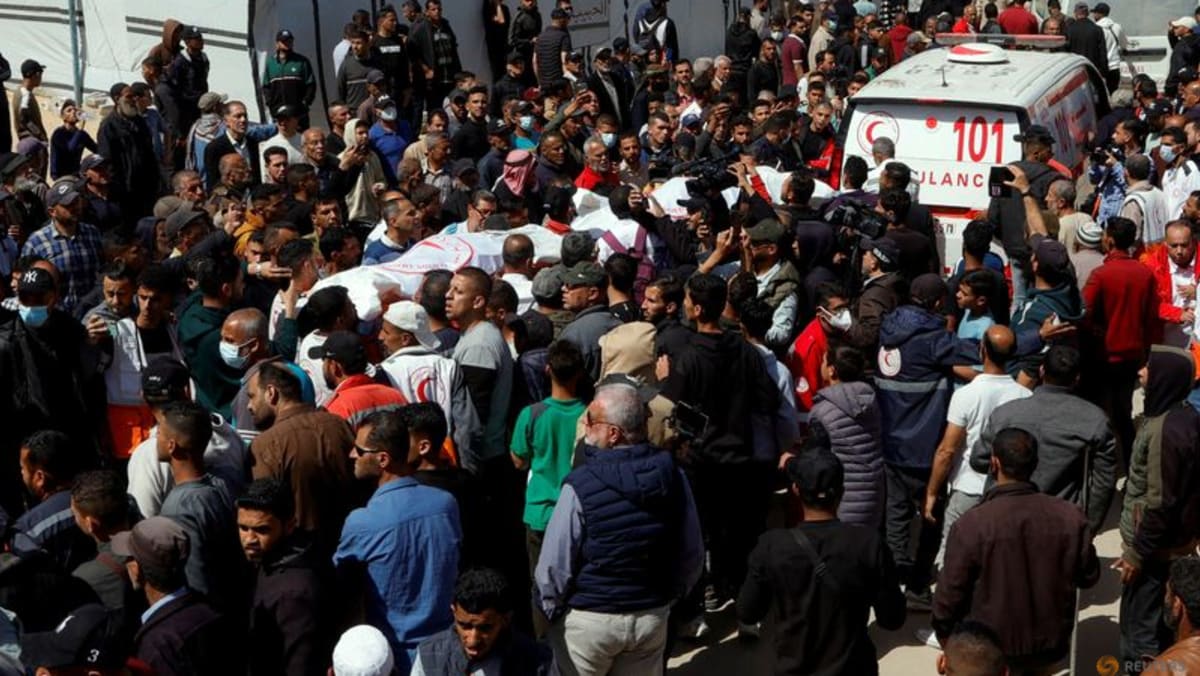However, fears of potential escalation resurfaced on after Israel’s far-right national security minister, Itamar Ben-Gvir, visited Jerusalem’s most sensitive holy site on Thursday to pray for the return of Israeli hostages, he said, “without a reckless deal, without surrendering.”
Local police in Tel Aviv said that the Friday blast sounded at around 3:10 am (Tel Aviv time), reverberating to nearby cities and physically injuring at least 10 people. Tel Aviv District Commander Peretz Amar said officers could not locate the point of contact, suggesting the explosion occurred in the air.
People are seen through a broken coffee shop window next to the scene of an explosive drone attack in Tel Aviv.Credit: AP
“The force of the explosion caused damage that is not great but is spread over a large area. At the moment we don’t know what the object was,” Amar said.
Israel possesses a multilayered aerial defence system, capable of intercepting threats ranging from long-range ballistic missiles to drones and short-range missiles. These systems have intercepted thousands of projectiles throughout the war. But officials warn they are not 100 per cent effective, and the systems appear to have struggled against small and hard-to-detect attack drones. It was not known which, if any, system was deployed.
Like Hamas, Hezbollah and the Houthis are backed by Israel’s arch enemy, Iran. Israel for the most part also has avoided a direct confrontation with Iran throughout the war. Iran launched hundreds of drones and missiles at Israel during a single incident in April in response to Israel’s alleged assassination of a pair of Iranian generals in Syria at the time.
The war in Gaza, which was sparked by Hamas’ October 7 attack on southern Israel, has killed more than 38,600 people, according to the territory’s Health Ministry, which does not distinguish between combatants and civilians in its count. The war has created a humanitarian catastrophe in the coastal Palestinian territory, displaced most of its 2.3 million population and triggered widespread hunger.
Hamas’ October attack killed 1200 people, mostly civilians, and militants took about 250 hostage. About 120 remain in captivity, with about a third of them believed to be dead, according to Israeli authorities.
AP
Get a note directly from our foreign correspondents on what’s making headlines around the world. Sign up for our weekly What in the World newsletter.




















Discussion about this post